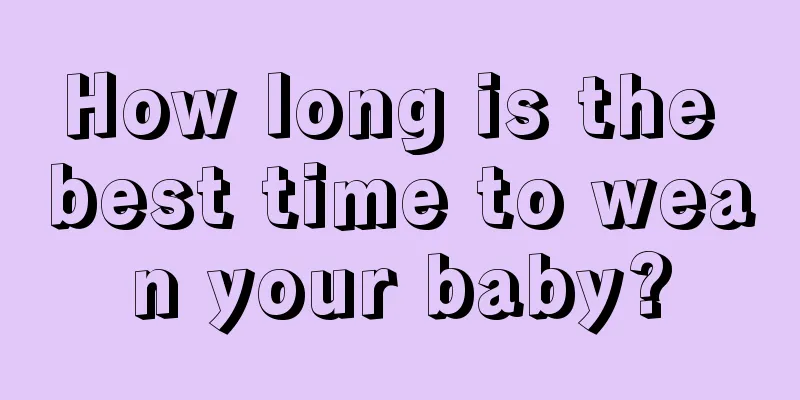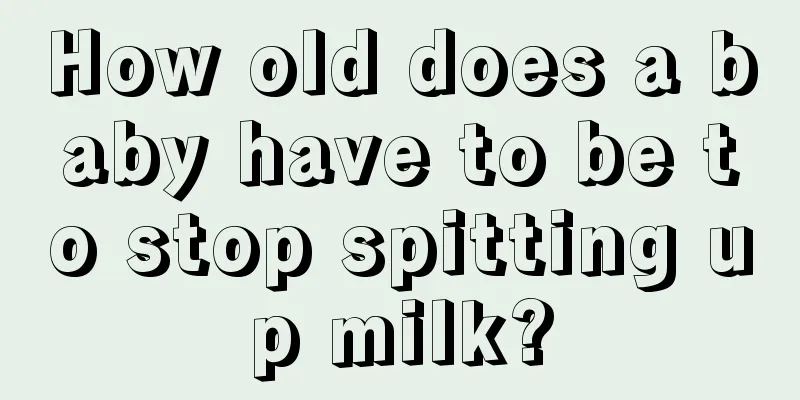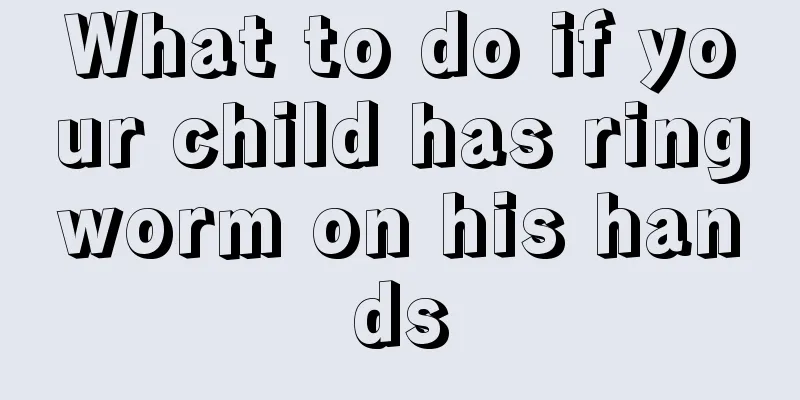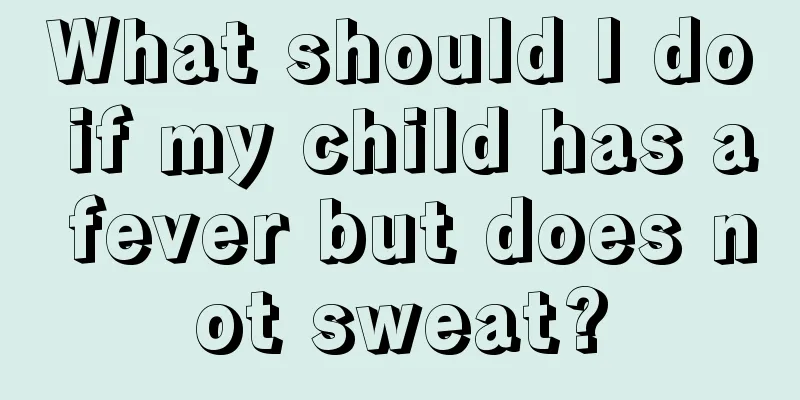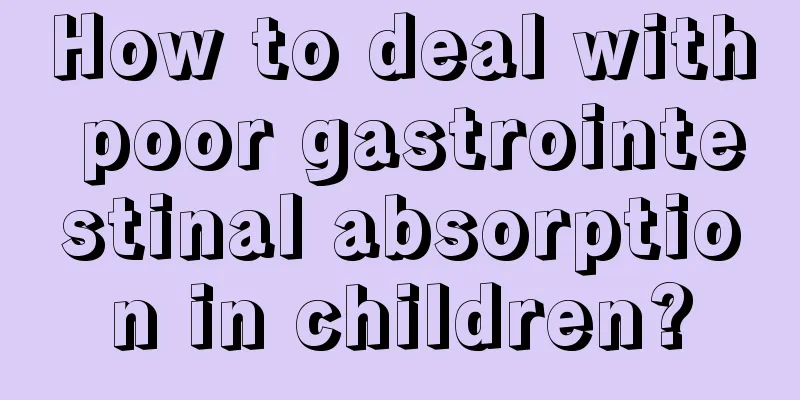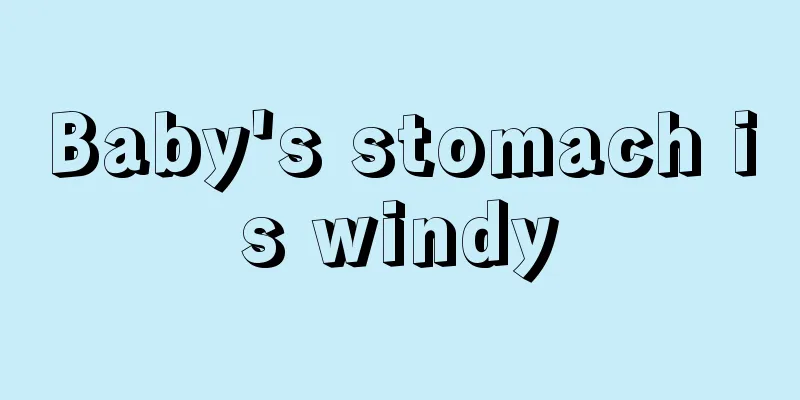Why does my baby have a runny nose when crying?
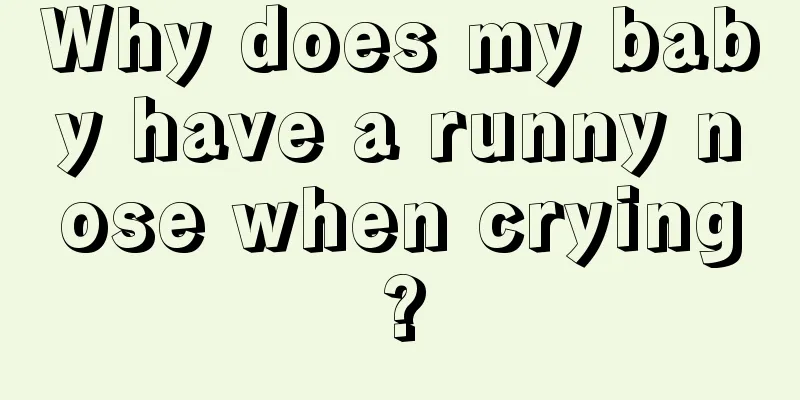
|
Whenever the baby at home cries loudly, many mothers will find that their baby's tears and snot burst out at the same time, and sometimes the snot is very long. When most people see their children have a runny nose, they simply think that the children have a cold. In fact, there are many reasons for a runny nose. Some other diseases can also cause a child to have a runny nose. You will understand after reading the editor's introduction! 1) Rhinitis caused by cold is called acute rhinitis. At this time, the nasal mucosa is congested and swollen, and the glandular secretions increase to form nasal mucus. It is clear water-like at first, and gradually becomes purulent after 3 to 5 days, and then gradually heals. 2) The baby often has clear runny nose accompanied by nasal congestion, itchy nose, sneezing and other symptoms, especially after getting up in the morning. The baby will sneeze immediately after getting out of the warm bed, followed by a continuous runny nose. You need to be alert to whether the baby has allergic rhinitis. Bronchial asthma is accompanied by runny nose, so mothers should pay attention to whether their babies suffer from allergic rhinitis. 3) If one side of the baby's nose has a foul odor, purulent mucus, and sometimes blood in the mucus, you need to consider whether there is a foreign body in the nasal cavity. This situation often occurs in children around 3 years old. When playing, they often put foreign objects such as paper, beans, and peanuts into their nasal cavity out of curiosity. Once inserted, they cannot be removed. After the water is absorbed, they become corrupt and produce a bad smell. However, small metal parts and buttons inserted into the nasal cavity may not necessarily cause a bad smell. In addition, if there is blood in the mucus, you should also be careful to rule out the possibility of nasal tumors. 4) When babies develop sinusitis due to acute or chronic rhinitis, they often have a lot of nasal mucus, which seems to be "endless", and is sometimes accompanied by headaches. 5) Some babies only have snot on one side of their nose, but cannot blow it out, their nostrils are blocked, and they snore when they sleep. In this case, you should be alert to the presence of nasal polyps. After reading the editor's introduction, I believe you have a clearer understanding of the reasons why your child has a runny nose. If your child has this condition, it is best to take your child to the hospital in time to rule out pathological runny nose. If the runny nose is only caused by crying, generally the child will be fine if he stops crying. When your baby has a runny nose, you must clean it promptly and be gentle. |
<<: What are the benefits of swimming for a two-year-old baby?
>>: Why does my three-year-old baby keep blinking?
Recommend
Reasons why babies move around when they sleep
As the weather gets hotter, many children always ...
Why is the baby scratching his scalp? Scratching scalp, baby, cause
Many babies always scratch their scalps in the su...
Is the baby afraid of cold or heat?
Every baby has a different physique. Some babies ...
If you want your children to be smart, you might as well eat these ten brain-boosting foods!
Parents, if you want your children to be smarter,...
How to correctly perform massage for children with diarrhea?
Children's gastrointestinal function is not y...
Are there any side effects to the weaning shot?
Weaning is a very important step. If weaning is n...
Why are my baby's hands and feet cold?
We all know that the baby's physical health i...
How many months is it normal for babies to start growing teeth?
It takes a certain amount of time for babies to g...
How to treat mumps in children effectively
Children are more likely to get mumps because the...
Rehabilitation training methods for language delay
Every parent wants their children to be eloquent ...
Why does the newborn baby always hum when sleeping at night?
With the coming of more and more babies into the ...
How to train your baby to roll over
Children can be said to be the center of a family...
What should I do if my child has premature ventricular beats?
Premature beats generally refer to irregular cont...
Introduction to myocardial injury in children
After many children are born, it is difficult for...
Green and foamy stool in children
If a child passes green stool with some small bub...
